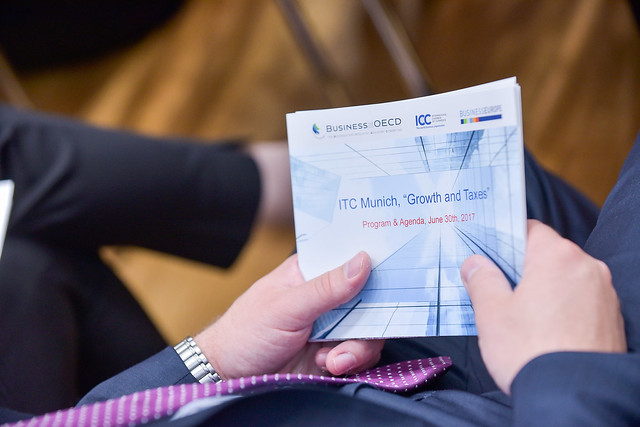
Taxation
4 growth-oriented tax policy priorities for business
A major international tax conference which took place in Munich last week, was a prime opportunity to set the business agenda and discuss key policy issues, with a view to facilitating cross-border trade and investment.
Hosted by the International Chamber of Commerce (ICC), in cooperation with the Business at OECD (BIAC) and BusinessEurope, the conference brought together renowned tax experts with representatives spanning international and regional organizations and institutions – including the Organisation for Economic Cooperation and Development (OECD), the United Nations (UN) and the European Commission (EC) – and the private sector.
“The conference is a platform for a valuable exchange between business representatives and key policymakers on fundamental tax issues that play an integral role in facilitating cross-border trade and investment,” said Christian Kaeser, Global Head of Tax at Siemens and Chairman of the ICC Commission on Taxation. “The business community welcomes the opportunity for an open and constructive dialogue with the aim to strengthen the integrity of the international tax system and to help shape tax policies that promote investment, job creation and economic growth.”
At a time when many countries are in the implementation phase of the OECD Base Erosion and Profit Shifting (BEPS) project, the conference provided a timely forum to explore practical ways forward, with a view to fostering growth-oriented tax policies, increasing tax certainty, reducing double taxation and strengthening taxpayer rights.
Here are 4 tax policy priorities for business from the world business organization highlighted during the event:
- Growth-oriented tax policies
While the OECD BEPS Package contains proposals which seek to more closely align tax systems with the dynamics and realities of modern business, the recommendations also create new burdens and risks of double taxation for businesses, especially for those engaged in cross-border activities. Growth-oriented tax policies at domestic and international levels, that aim to remove obstacles for cross-border trade, are essential to promote investment and foster economic growth.
- Legal certainty and dispute prevention
For the business community, the integrity of the international tax system is of critical importance. Tax uncertainty, such as the use of complicated, inconsistent and hard-to-apply tax rules create barriers to trade. Legal certainty is a foundational factor in attracting investment and relies, to a large degree, on strengthening the consistency of the international tax system. Pascal Saint-Amans, Director of the Centre for Tax Policy and Administration at the OECD said: “If we want to promote growth in an environment that is sustainable, accepted and not disputed, we need to have a balanced approach. More responsibility on the part of both taxpayers and tax administrations would be the way forward to restore trust in the tax system.
- Mutual relationship of trust and responsibility between tax payers/authorities
As revenue bodies and business work to find their footing in the post-BEPS implementation environment, it is ever more important to establish a mutual relationship of trust, respect and responsibility between taxpayers and tax authorities. A tax charter could be a useful tool to expand on what the fundamental rights of taxpayers should be. At the same time, it will be discussed whether these rights should be counter balanced by obligations for the taxpayers to the tax administrations.
- Dispute resolution
In instances where dispute prevention is not possible, making dispute resolution more effective, such as binding arbitration or the Mutual Agreement Procedure (MAP), is crucial for the successful implementation of the BEPS recommendations at local level. As a large increase in the number of tax disputes is expected in the post-BEPS era, it is imperative that robust dispute resolutions are in place to reduce double taxation.
Georg Geberth, Director Global Tax Policy at Siemens and ICC Taxation Commission member responsible for co-ordinating the conference concluded: “The positive collaboration and wealth of expertise shared demonstrates an alignment within the business community to advance a forward-looking tax agenda, with practicable solutions that could help strengthen global efforts to establish a consistent international landscape and pave the way for developing a relationship of openness and trust between taxpayers and tax authorities.”


